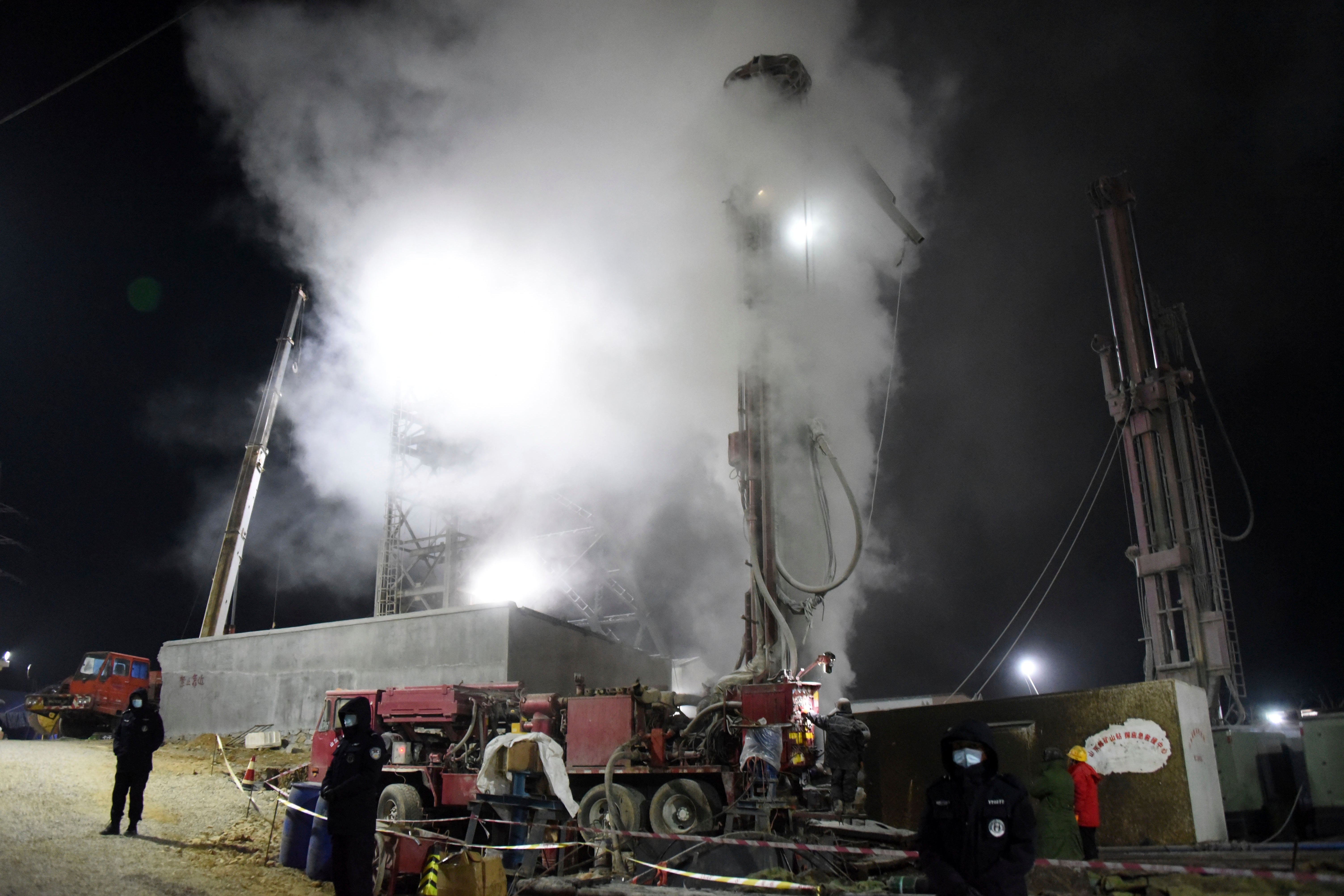Rescuers in phone contact with workers trapped in China mine
A Chinese official says rescuers are in telephone contact with workers trapped for more than a week in a gold mine and have been able to send them food and medicine

Rescuers are in telephone contact with workers trapped for more than a week following an explosion in a gold mine in China and have been able to send them food and medicine, an official said Tuesday.
Chen Fei, the mayor of the city of Yantai, said it appeared at least 12 of the 22 workers underground were alive and in relatively good health. The fate of the other 10 workers remained unknown.
Hundreds of rescuers were drilling six shafts in an attempt to reach the different parts of the mine, as well as seeking to clear debris left by an explosion on Jan. 10 that cut the miners off from the surface.
Workers passed a note to the surface on Monday saying they were suffering from toxic fumes and rising water levels but calling on rescuers not to give up. Mine managers have been detained for waiting more than 24 hours before reporting the accident.
The mine in Qixia, a jurisdiction under Yantai in Shandong province, had been under construction at the time of the blast.
Increased supervision has improved safety in China's mining industry, which used to post an average of 5,000 deaths per year. Yet demand for coal and precious metals continues to prompt corner-cutting and two accidents in the southwestern megacity of Chongqing last year killed 39 miners.
Bookmark popover
Removed from bookmarks